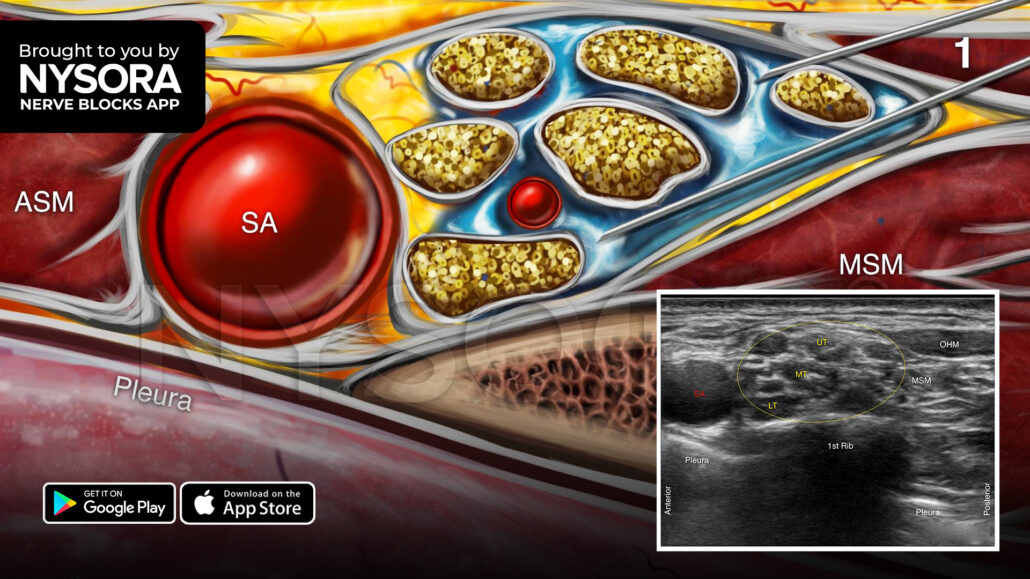
Case study: Anesthetic Strategy for Elbow Surgery in Obese, COPD Gold III Patient with Prior Myocardial Infarction
Case presentation
A 52-year-old obese woman with chronic obstructive pulmonary disease (COPD) Gold III and a history of acute myocardial infarction (AMI) was scheduled for elbow surgery. The patient required an appropriate anesthetic approach that takes into account her specific health conditions and minimizes potential risks.
For pulmonary reasons, spread toward the phrenic nerve should be avoided at all times. For cardiac reasons, an insufficient block and rescue general anesthesia should be avoided. Slow titration is best to ensure this.
An ultrasound-guided supraclavicular catheter placement was proposed. A supraclavicular block reduces the risk of phrenic nerve paralysis and the resulting diaphragmatic paresis compared to an interscalene block.
Nerve block technique
The goal is to place the catheter within the vicinity of the trunks and divisions of the brachial plexus adjacent to the subclavian artery. The procedure consisted of three phases:
- needle placement
- catheter advancement
- securing the catheter
The needle was inserted in-plane, in a lateral-to-medial direction, so that the tip was just posterior to the brachial plexus sheath. Next, the needle was advanced to pierce the sheath, followed by catheter placement. An initial dose of 10 mL of bupivacaine 0.5% was given. After 25 minutes, the anesthesia of the arm was tested, and small increments of local anesthetic were administered if necessary.
Patient outcome
The patient recovered well without any significant complications related to the anesthesia. The chosen anesthetic approach, considering the patient’s COPD Gold III and history of AMI, proved to be successful in providing safe and effective anesthesia for elbow surgery.
For more case studies like these and the complete guide to the 60 most frequently used nerve blocks, download the Nerve Blocks App HERE. Don’t miss the chance to get the bestselling NYSORA Nerve Blocks App also in book format – the perfect study companion with the Nerve Blocks app!



